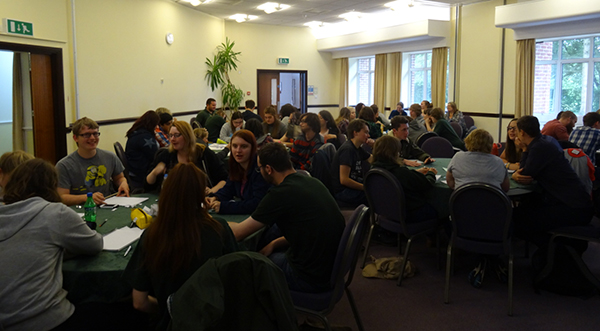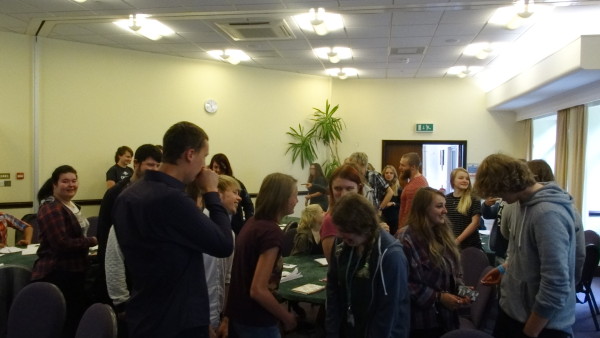Nearly 50 students at Sparsholt College in Hampshire took part in my communications and careers workshop yesterday. We had fun exploring different communication techniques from poetry and tongue twisters to imitating animals and body language. And importantly we also looked at the specific communication issue of applying for jobs and undertaking an interview. What’s your story?


The students were great and this was the culmination of a year of activity of preparing for the world of work (I had worked with them before on trips to Twycross and Dudley) and I was pleased to see their portfolios and evidence of training, learning and personal information that will assist them in recruitment situations. Many of these students are well prepared and hopefully have an ‘edge’ over others, and can communicate this, given the chance.
The training and development of staff is something that pays dividends in terms of effectiveness, achieving desired outcomes, motivation and organisational pride. Through ABWAK and in my previous zoo roles, I’m very pleased to have supported a diversity of staff to enhance their skills and develop the opportunities available to them and the organisation they work for.
 It is however, disappointing that in many cases, the support for training is expressed and stated in policy but not followed through in terms of providing sufficient time and resources to enact. My training workshops are therefore provided cheaply to enable participation and engagement and motivation; likewise ABWAK workshops are designed to support keeper development at minimal cost and use the community’s shared expertise.
It is however, disappointing that in many cases, the support for training is expressed and stated in policy but not followed through in terms of providing sufficient time and resources to enact. My training workshops are therefore provided cheaply to enable participation and engagement and motivation; likewise ABWAK workshops are designed to support keeper development at minimal cost and use the community’s shared expertise.
Zoos are very good at sharing ideas and experience, working together on animal programmes and exchanging animals for breeding etc. However, this philosophy is only partly found in the area of staff training and development. Sir Richard Branson’s quote hits at the heart of the issue – some organisations worry that training their staff to be even better will enable them to go elsewhere (true)… but if the organisation really values its staff and provides good reason and motivation, and some reward, then those staff will stay and support the organisation to continuously develop and improve.
The employment opportunity for the students is limited by the current practice of ‘replacing’ previous work activity with internships and volunteering, and the wages offered to paid roles has been kept low by many, knowing there is always someone that wants to take the job and work in the zoo… I hope that the zoo community will heed Richard Branson’s words and do what it can to retain and develop the talent and expertise that it has nurtured and is available to it. Who are the next team leaders? curators? head keepers? directors? – they could be right there now, waiting and willing to be trained and developed.
